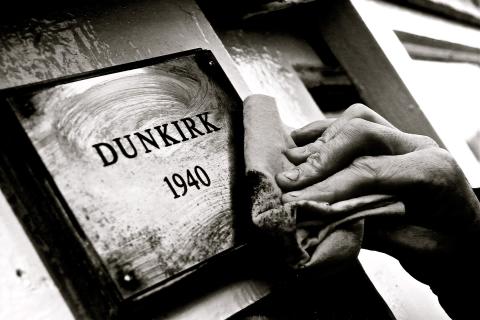Sponsors
National Historic Ships UK acknowledges the financial support of its sponsors
Assuming that you have mastered the basics of exposure and composition, you should then concentrate on the subject. Make sure that you keep to the brief and keep in mind that the key is to make the subject interesting. If it is a well photographed subject, consider photographing it from an unusual angle or pick out some detail that in itself will make a good photograph. Try visiting the subject at various times of day to see how the different angles and intensity of light affect and alter your subject. Experiment all the time, particularly if you are using a digital camera. Try changing exposures, shutter speeds, and altering angles. Take black and white and not just colour photography. Very often the composition can be enhanced or changed completely by cropping the photograph. Wherever possible take your camera with you, since many of the most interesting photographs are never planned. They are just happened upon by chance.
If you are taking photographs afloat, a unique set of problems arise. Firstly, the weather conditions are constantly changing. Your platform is invariably moving - sometimes violently, as is your subject so you have to move fast and make decisions quickly. Cameras do not like saltwater! Although you cannot revisit exactly the same scene that you saw previously, the other principles listed above still apply. Look for the interesting angle and composition. Over time, you will be able to see situations developing which could provide a striking image and you will be able to anticipate when and where this will happen. The more you know about how various types of vessels behave at sea in an assortment of weather conditions, the greater the likelihood of capturing a great photograph - and the safer you will be! If you are afloat photographing alone, you must develop a very acute peripheral vision and develop a sense of what is happening on the water 360 degrees around you.
You don't have to have an expensive or sophisticated camera to take a good photograph. The smaller the camera the more likely it is that you will have it with you when that one-off shot presents itself. Ideally, you should become so familiar with your camera that it becomes an extension of your hand and eye. Wherever you go, whether you have a camera with you or not, practise looking at subjects, even the most mundane, as though you were going to photograph them. You will begin to notice shapes, composition, light, detail and texture which previously you would not have given a second thought. In time, this will become second nature. It is not about the camera: it is about what you see and how you interpret it.
Boat Photography Tips from the late, great Keith Beken
The legendary Keith Beken, of The Beken of Cowes Marine Photography, was famous for his fantastic timing and unique vision. His skills enabled him to capture the decisive moment, that gave Keith's pictures their own style:

National Historic Ships UK acknowledges the financial support of its sponsors